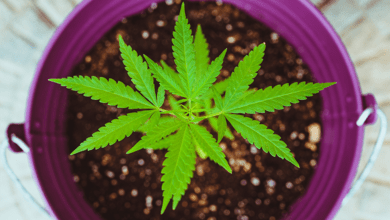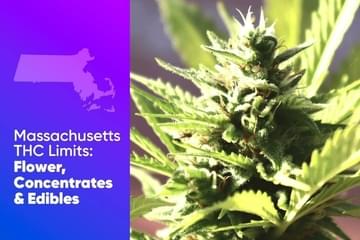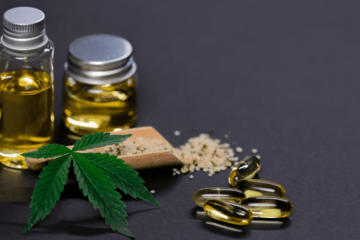
Movement Toward Cannabis Appellations: Why It's Important
Published on 12/21/20
The cannabis industry has been rapidly growing since the first few states legalized recreational marijuana. Now that there are 15 fully legalized states and 35 states with legalized medical marijuana, it's more important than ever to create systems of classification and regional regulation. This is where appellations come into play. California is already helping find new ways to use this old system, and it may become the new standard in marijuana categorization sooner rather than later. Here are all the basics you need to know about appellations and how they relate to cannabis.
What Are Appellations?
Appellations are geographical boundaries used to identify where a product originates from and is most commonly associated with the wine industry (although, other food types also implement appellation systems). Each country has a unique list of appellations and each appellation has its own defined set of laws and regulations. In the case of wine, appellations dictate the type of grapes grown, maximum yields, alcohol levels, etc. These specific regulations help consumers understand what they are buying and sets both quality assurance and clear product differentiations.
Why Do Appellations Matter to Cannabis?
 Photo by Add Weed on Unsplash
Photo by Add Weed on UnsplashAs the art and science of cannabis cultivation continue to develop, the number of cannabis farms continues to grow and the legal statuses of marijuana continue to change, the need for regulations and product differentiation becomes increasingly necessary. Because it is a nascent industry with a history of cultural taboos and legal condemnation, cannabis is still widely misunderstood. However, like wine, there are countless variations of marijuana. Not all cannabis is created equal. Quality varies greatly, and details like where and how are incredibly important in understanding what sets different types and qualities of marijuana apart. Appellations will help categorize marijuana into more identifiable groups, build product differentiation, increase customer knowledge, and establish industry legitimacy.
Product Differentiation
We primarily categorize marijuana by THC levels and strain types (indica, sativa, or hybrid). There is, however, much more that goes into any given product. Unless a dispensary promotes specific farms, it's currently difficult for growers to stand out. Appellations will help high-quality regions to be more identifiable, and specific farms and exceptional products will have a better chance of being recognized. Appellation classifications will, in turn, give the customer more information, similar to how wine consumers can recognize the specific type and region by simply reading a bottle's label. Over time, this will allow customers to better understand what they enjoy, what to look for, and what the standards of any given product should likely be.
Customer Knowledge
 Photo by Andrea Piacquadio from Pexels
Photo by Andrea Piacquadio from PexelsIf the cannabis industry adopts appellations, consumers will likely benefit from a new level of product information. As with every industry, there has been a renewed interest in where products come from, who makes them, and what their specific stories are. Appellations will give cannabis consumers easier access to important information like region, company, and the specific qualities associated with each of these identifiers. Customers will have quicker, more digestible understandings of what makes each product special, and a more informed consumer leads to better products, a fairer industry, and a system that promotes legitimacy and product transparency. There are still a lot of unknowns about marijuana, especially from the consumers' perspective - appellations can help change that.
Industry Legitimacy
Marijuana has, until recently, been a black-market commodity. Its long-standing classification as an illegal, Schedule 1 drug has made it incredibly difficult to sway public understandings of marijuana and its complex production processes. The standards, assurances, and categorizations that appellations would provide the cannabis industry would result in a more transparent product. If we can trace the specifics of any given marijuana product back to regulated regions and standards, it would go a long way in legitimizing the overall understanding of marijuana. Additionally, since the appellation system is being adapted from the long-standing wine industry, its implementation would help parallel marijuana production and distribution with other legitimized businesses, further increasing its credibility and social acceptability.
The State of Cannabis Appellations
The California Department of Food and Agriculture published its proposed regulations for cannabis appellations to the public, on February 20, 2020. The proposed cannabis appellation program is still being considered after three months of public comment acceptance, and we are currently awaiting the California Department of Food and Agriculture to release their final decision. The first of its kind, here's what the California cannabis appellation program would do:
- Cannabis products could only be marketed as regionally specific if it's 100% grown in said region.
- Licensed cannabis companies would have to register through the CDFA before using an appellation of origin.
- Licensed cannabis companies would be able to petition the establishment of new appellations throughout California. These appellations would provide a variety of regional descriptors and production/product standards.
Various states have seen unofficial proposals by various cannabis companies throughout the last few years, but California currently remains the only state with a legitimate program proposal. However, the industry regulations in states like Oregon and Colorado are suitable foundations for such programs to follow. Depending on how California's experiment works and what the next few years of cannabis activism and legalization look like, we may see a revolutionary change in the way we categorize, regulate, label, sell and even understand cannabis.
Cannabis appellations could be a game-changer for the industry. Comment below with your feedback and opinions!


















